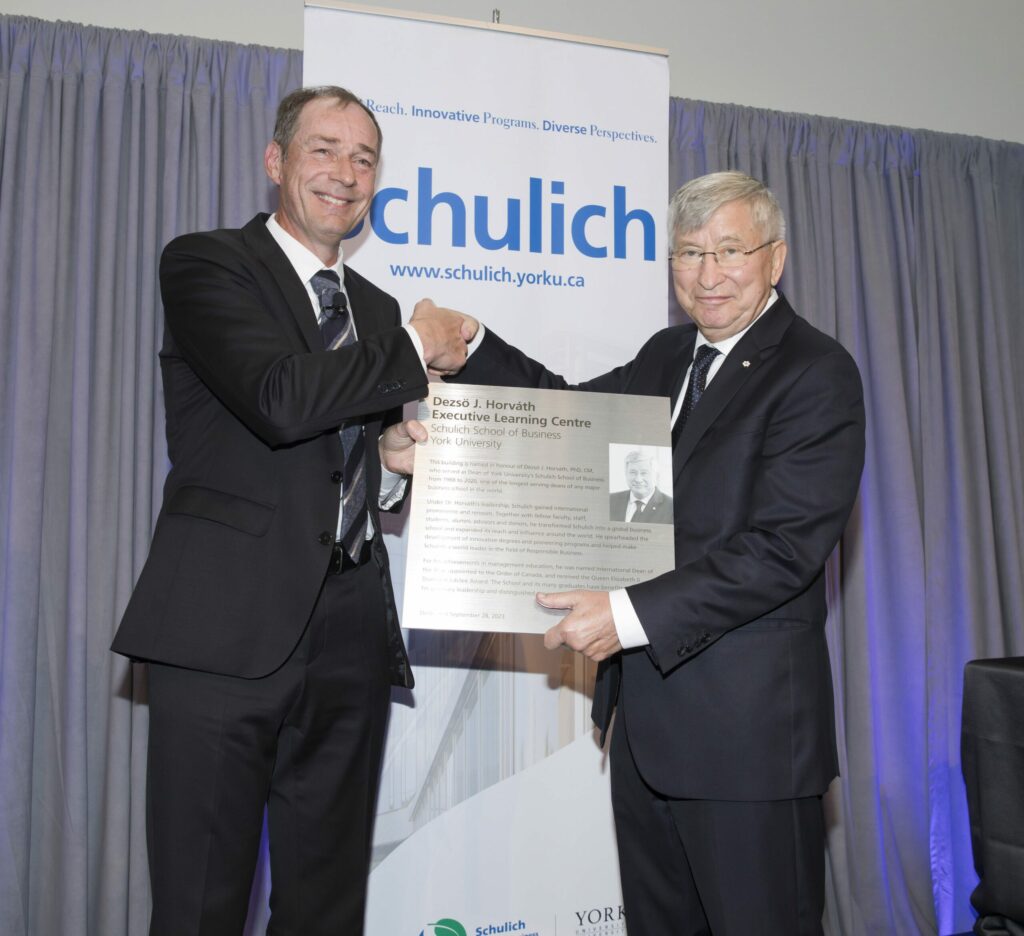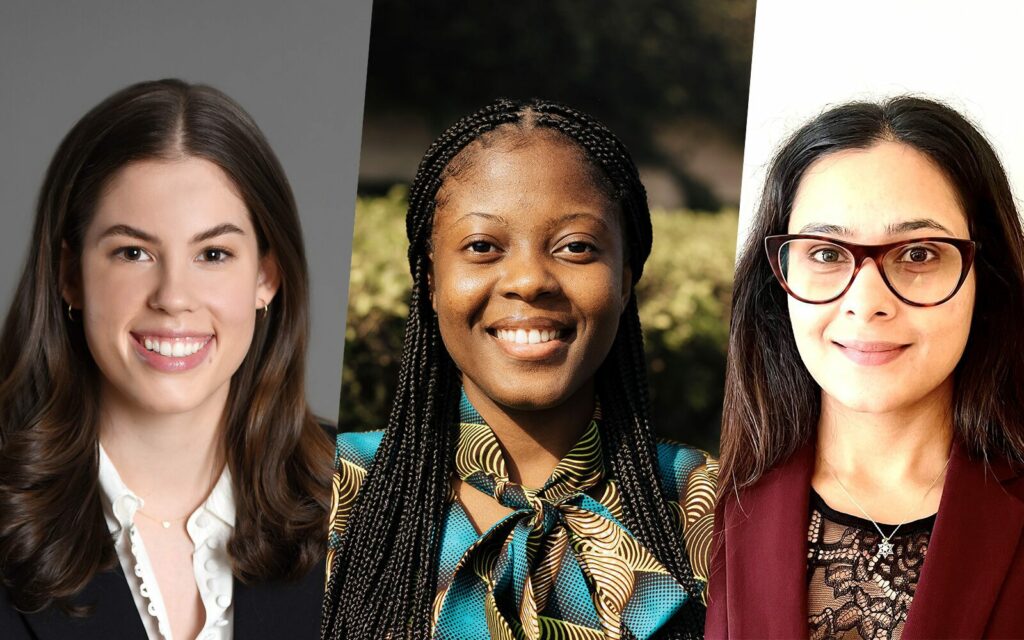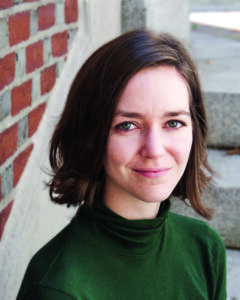Last week, York University’s Schulich School of Business held a workshop and traditional Indigenous smudging ceremony to honour Canada’s third annual National Day for Truth and Reconciliation. Facilitated by Kristin Murray, Schulich’s executive-in-residence for Indigenous initiatives and a proud member of Chapleau Cree First Nation, this event is one of several initiatives Schulich is implementing as part of its ongoing journey towards greater awareness, integrated inclusivity and meaningful reconciliation.
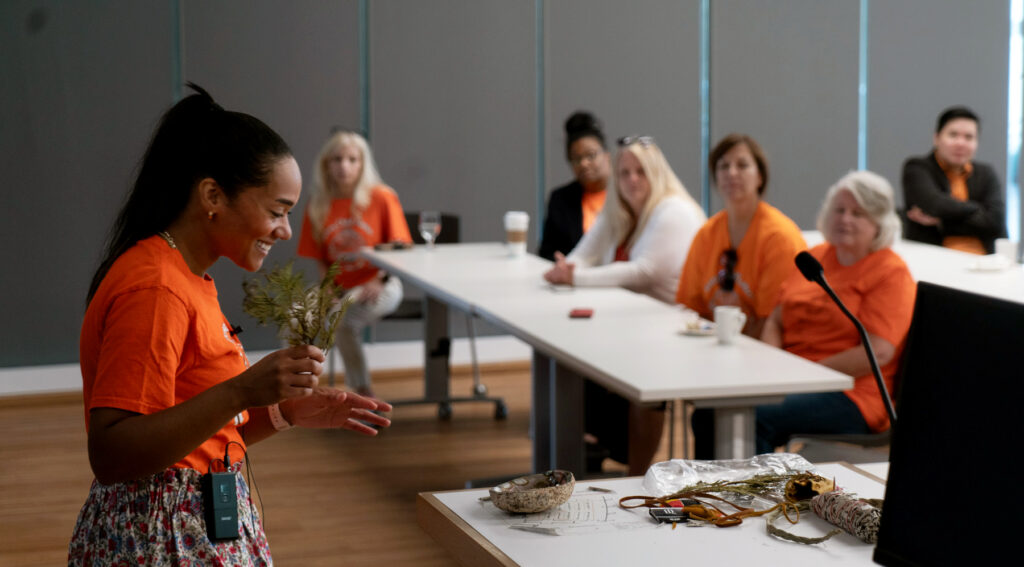
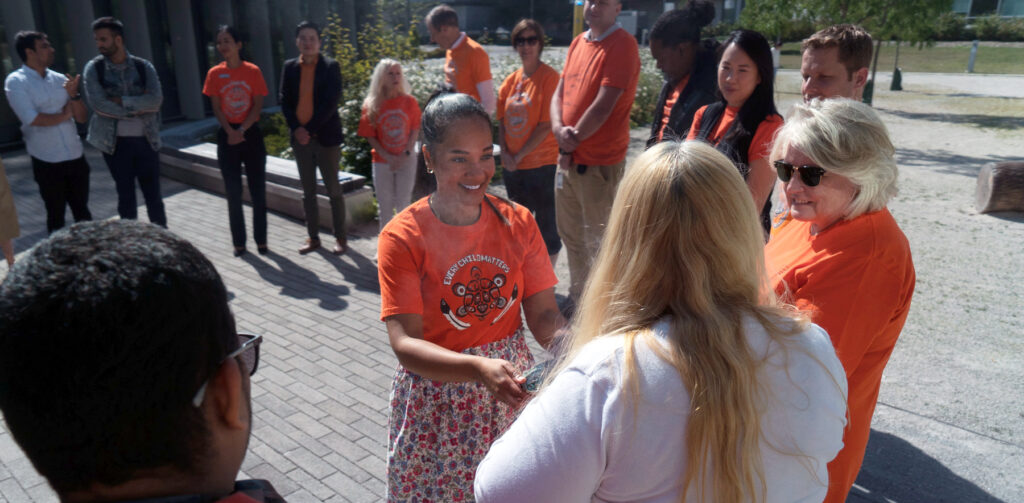
“When people leave this space with new knowledge, they may take a little chunk and share it with someone else,” said Murray. “That’s why I am passionate about my work at Schulich. To know that our stories will benefit others is beautiful.”
Murray introduced attendees to the significance, context and symbolism behind the smudging ceremony as they enjoyed tea and bannock, a traditional Indigenous pan-fried bread. She shared personal stories about her experience with smudging, where smoke from burning sacred plants is used to cleanse negative thoughts and feelings, and spoke about the qualities of the four sacred medicines. After the workshop, attendees had the opportunity to participate in a smudge around the Busy Beaver sculpture in the courtyard of the Rob and Cheryl McEwen Graduate Study & Research Building.

“By sharing teachings as both an Indigenous and Black woman, Sacred Eagle Woman (Kristin Murray) reminds us of how deeply connected these two communities are,” said Professor Carl James, the Jean Augustine Chair in Education, Community and Diaspora in York’s Faculty of Education, who attended the event. “Acknowledging the complexities of our intersecting identifies, shared practices, can only bring us closer together.”
In addition to the smudging ceremony, Schulich encouraged all faculty, staff and students to wear an orange shirt throughout the week leading up to the National Day for Truth and Reconciliation to commemorate the residential school experience, honour survivors and remember the children who were not able to return home. Schulich also arranged for official “Every Child Matters” orange T-shirts to be sold at the Schulich Trading Store on Sept. 26, with all profits being donated to the Orange Shirt Society.
“We see this event as a starting point for a host of events, activities and changes we plan to implement over the next few months,” said Schulich Dean Detlev Zwick. “Thank you for participating in the process that the University needs to continue on truth and reconciliation”.





